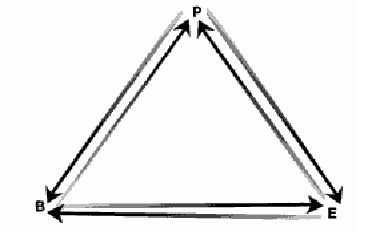Difference between revisions of "Social cognitive theory"
m (Text replace - "thumb|right|134px|This site is associated with [http://www.aisworld.org/ AISWorld]" to "{{Sponsor Thumbs}}") |
|||
| Line 49: | Line 49: | ||
Chan, S. C., and Lu, M. “Understanding Internet Banking Adoption and Use Behavior: A Hong Kong Perspective,” Journal of Global Information Management (12:3), July/September 2004, pp. 21-44. | Chan, S. C., and Lu, M. “Understanding Internet Banking Adoption and Use Behavior: A Hong Kong Perspective,” Journal of Global Information Management (12:3), July/September 2004, pp. 21-44. | ||
| − | Compeau, D., Higgins, C. A., and Huff, S. | + | Compeau, D., Higgins, C. A., and Huff, S. “[http://inn.colorado.edu/Details/Paper/82 Social cognitive theory and individual reactions to computing technology: A longitudinal study],” MIS Quarterly (23:2), June 1999, pp. 145-159. |
| − | Compeau, D. R., and Higgins, C. A. | + | Compeau, D. R., and Higgins, C. A. “[http://inn.colorado.edu/Details/Paper/6884 Application of social cognitive theory to training for computer skills],” Information Systems Research (6:2), June 1995, pp. 118-142. |
Hasan, B., and Ali, J. M. H. “An Empirical Examination of a Model of Computer Learning Performance,” The Journal of Computer Information Systems (44:4), Summer 2004, pp. 27-34. | Hasan, B., and Ali, J. M. H. “An Empirical Examination of a Model of Computer Learning Performance,” The Journal of Computer Information Systems (44:4), Summer 2004, pp. 27-34. | ||
| Line 59: | Line 59: | ||
Liaw, S. S., Chang, W. C., Hung, W. H., and Huang, H. M. “Attitudes toward search engines as a learning assisted tool: approach of Liaw and Huang’s research model,” Computers in Human Behavior (22:2), March 2006, pp. 177-190. | Liaw, S. S., Chang, W. C., Hung, W. H., and Huang, H. M. “Attitudes toward search engines as a learning assisted tool: approach of Liaw and Huang’s research model,” Computers in Human Behavior (22:2), March 2006, pp. 177-190. | ||
| − | Pearson, J. M., Bahmanziari, T., Crosby, L., and Conrad, E. “An empirical investigation into the relationship between organizational culture and computer efficacy as moderated by age and gender,” The Journal of Computer Information Systems (43:2), Winter 2002/2003, pp. 58-70. | + | Pearson, J. M., Bahmanziari, T., Crosby, L., and Conrad, E. “An empirical investigation into the relationship between organizational culture and computer efficacy as moderated by age and gender,” The Journal of Computer Information Systems (43:2), Winter 2002/2003, pp. 58-70. |
| + | |||
== Links from this theory to other theories == | == Links from this theory to other theories == | ||
[[Self-efficacy theory]], [[Hermeneutics]], Social Learning Theory | [[Self-efficacy theory]], [[Hermeneutics]], Social Learning Theory | ||
Latest revision as of 18:43, 4 December 2014

Social cognitive theory
Acronym
SCT
Alternate name(s)
N/A
Main dependent construct(s)/factor(s)
Learning, Change in behavior
Main independent construct(s)/factor(s)
Personal factors, Behavior, Environment
Concise description of theory
Social cognitive theory provides a framework for understanding, predicting, and changing human behavior. The theory identifies human behavior as an interaction of personal factors, behavior, and the environment (Bandura 1977; Bandura 1986).
In the model, the interaction between the person and behavior involves the influences of a person’s thoughts and actions. The interaction between the person and the environment involves human beliefs and cognitive competencies that are developed and modified by social influences and structures within the environment. The third interaction, between the environment and behavior, involves a person’s behavior determining the aspects of their environment and in turn their behavior is modified by that environment.
According to Jones (1989) “the fact that behavior varies from situation to situation may not necessarily mean that behavior is controlled by situations but rather that the person is construing the situations differently and thus the same set of stimuli may provoke different responses from different people or from the same person at different times.”
In conclusion, social cognitive theory is helpful for understanding and predicting both individual and group behavior and identifying methods in which behavior can be modified or changed.
Diagram/schematic of theory
Social Cognitive Theory: B represents behavior, P represents personal factors in the form of cognitive, affective, and biological events, and E represents the external environment.
Source: Bandura (1986)
Originating author(s)
Albert Bandura
Seminal articles
Bandura, A. “Self-Efficacy: Toward a Unifying Theory of Behavioral Change,” Psychology Review (84), 1977, pp. 191-215.
Bandura, A. Social foundations of thought and action: A social cognitive theory, Prentice-Hall, Englewood Cliffs, NJ, 1986.
Bandura, A. “Social cognitive theory: An agentive perspective,” Annual Review of Psychology (52:1), 2001, pp. 1-26.
Bandura, A. “Human agency in social cognitive theory,” American Psychologist (44), 1989, pp. 1175-1184.
Jones, J. W. “Personality and epistemology: Cognitive social learning theory as a philosophy of science,” Zygon (24:1), 1989, pp. 23-38.
Miller, N. E., & Dollard, J. (1941). Social Learning and Imitation. New Haven: Yale University Press.
Originating area
Psychology
Level of analysis
Individual/Group
IS articles that use the theory
Bolt, M. A., Killough, L. N., and Koh, H. C. “Testing the interaction effects of task complexity in computer training using the social cognitive model,” Decision Sciences (32:1), Winter 2001, pp. 1-20.
Chan, S. C., and Lu, M. “Understanding Internet Banking Adoption and Use Behavior: A Hong Kong Perspective,” Journal of Global Information Management (12:3), July/September 2004, pp. 21-44.
Compeau, D., Higgins, C. A., and Huff, S. “Social cognitive theory and individual reactions to computing technology: A longitudinal study,” MIS Quarterly (23:2), June 1999, pp. 145-159.
Compeau, D. R., and Higgins, C. A. “Application of social cognitive theory to training for computer skills,” Information Systems Research (6:2), June 1995, pp. 118-142.
Hasan, B., and Ali, J. M. H. “An Empirical Examination of a Model of Computer Learning Performance,” The Journal of Computer Information Systems (44:4), Summer 2004, pp. 27-34.
Kuo, F. Y., Chu, T. H., Hsu, M. H., and Hsieh, H. S. “An investigation of effort-accuracy trade-off and the impact of self-efficacy on Web searching behaviors,” Decision Support Systems, (37:3), June 2004, pp. 331.
Liaw, S. S., Chang, W. C., Hung, W. H., and Huang, H. M. “Attitudes toward search engines as a learning assisted tool: approach of Liaw and Huang’s research model,” Computers in Human Behavior (22:2), March 2006, pp. 177-190.
Pearson, J. M., Bahmanziari, T., Crosby, L., and Conrad, E. “An empirical investigation into the relationship between organizational culture and computer efficacy as moderated by age and gender,” The Journal of Computer Information Systems (43:2), Winter 2002/2003, pp. 58-70.
Links from this theory to other theories
Self-efficacy theory, Hermeneutics, Social Learning Theory
External links
http://www.learning-theories.com/social-learning-theory-bandura.html, Summary of SCT by Learning-theories.com.
http://hsc.usf.edu/~kmbrown/Social_Cognitive_Theory_Overview.htm, University of South Florida entry on social cognitive theory.
http://www.des.emory.edu/mfp/eff.html, Frank Pajares’ webpage on social cognitive theory.
Original Contributor(s)
Alanah Davis
Please feel free to make modifications to this site. In order to do so, you must register.
Return to Theories Used in IS Research
